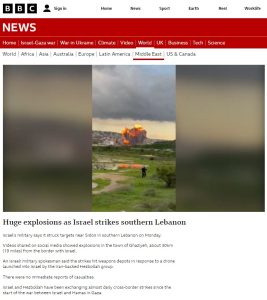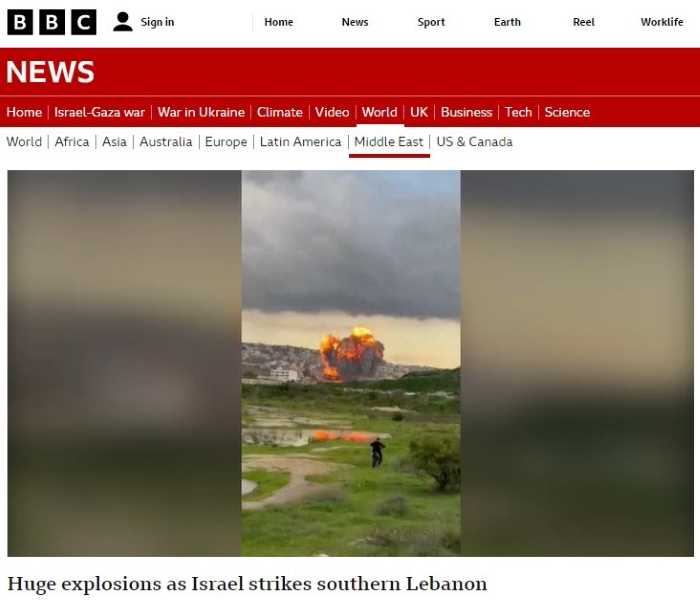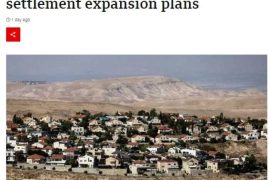On the evening of February 19th the BBC News website published a short filmed report headlined “Huge explosions as Israel strikes southern Lebanon”.

The video – which is in fact a compilation of footage available on social media – is presented without commentary, meaning that the only information about that story provided to BBC audiences is what appears in the short synopsis:
“Israel’s military says it struck targets near Sidon in southern Lebanon on Monday.
Videos shared on social media showed explosions in the town of Ghaziyeh, about 30km (19 miles) from the border with Israel.
An Israeli military spokesman said the strikes hit weapons depots in response to a drone launched into Israel by the Iran-backed Hezbollah group.
There were no immediate reports of casualties.
Israel and Hezbollah have been exchanging almost daily cross-border strikes since the start of the war between Israel and Hamas in Gaza.”
That story began on the morning of February 19th. What the BBC describes as “a drone launched into Israel by the Iran-backed Hezbollah group” was actually a drone carrying explosives which crashed into an open area near Moshav Arbel in the Lower Galilee (over 50 kms from Israel’s border with Lebanon) about 200 meters from a kindergarten.
Several hours later, the IDF announced that it had struck munitions warehouses near Sidon.
“The Israel Defense Forces on Monday afternoon struck what it said were two weapon depots belonging to the Hezbollah terror group near Lebanon’s southern coastal city of Sidon.
The strikes came as a response to a drone attack on northern Israel hours earlier, which caused no damage or injuries.
Lebanese media reported Israeli airstrikes in the town of Ghaziyeh, on the southern outskirts of Sidon, some 30 kilometers (19 miles) from the northern border.”
In contrast to the BBC’s claim concerning casualties, the Times of Israel reported that:
“Lebanon’s state-run National News Agency (NNA) said that 14 people in the country were wounded in the strike.
NNA claimed that the strikes targeted a warehouse where tires and electricity generators were manufactured, and the vicinity of a factory, left “14 wounded, most of them Syrian and Palestinian workers.””
The Hizballah affiliated media outlet al Mayadeen claimed that the strikes “had hit the warehouses of a generator factory and an iron factory”.
Notably, those ‘factories’ were still on fire the next day.
The fact that the synopsis fails to provide audiences with the full details concerning that “drone launched into Israel” obviously compromises their ability to understand the one part of the story that the BBC did choose to present in this filmed report: Israel’s response to that attack.
That editorial choice however comes as no surprise given that it supports the narrative of ‘exchanges’ of “almost daily cross-border strikes” which has been repeatedly promoted by the BBC, despite the fact that Hizballah began the conflict on October 8th and has since repeatedly targeted civilian communities in attacks that go mostly unreported by BBC journalists.
Related Articles:
BBC BACKGROUNDER ON ‘A WEEK OF MISSILE STRIKES’ ERASES ATTACKS ON ISRAEL
BBC NEWS CONTINUES TO UNDER INFORM ON EVENTS IN NORTHERN ISRAEL





